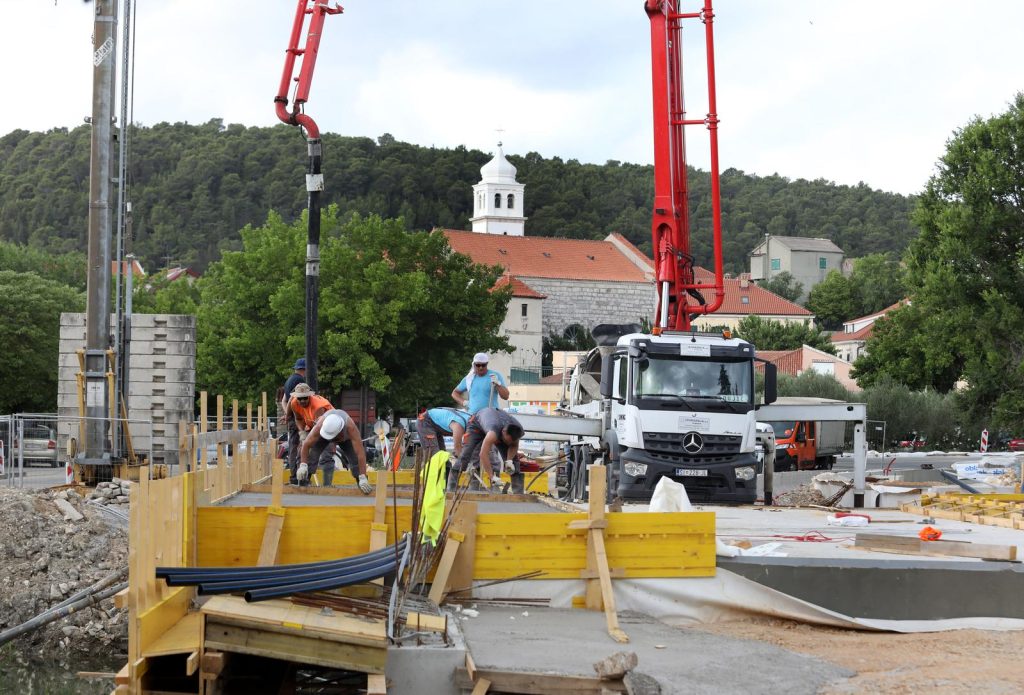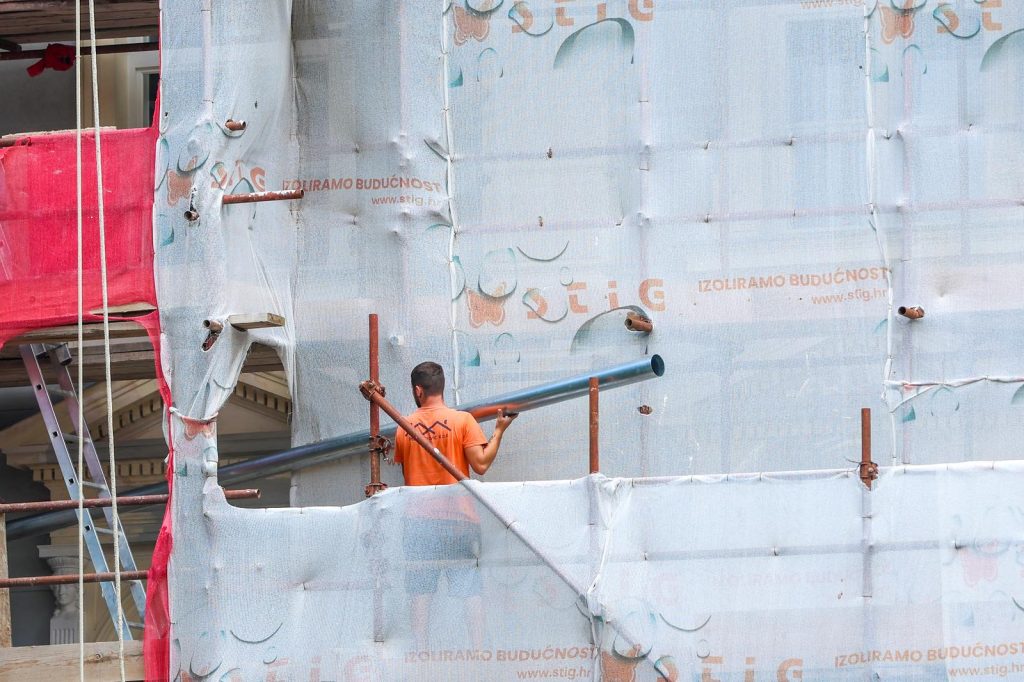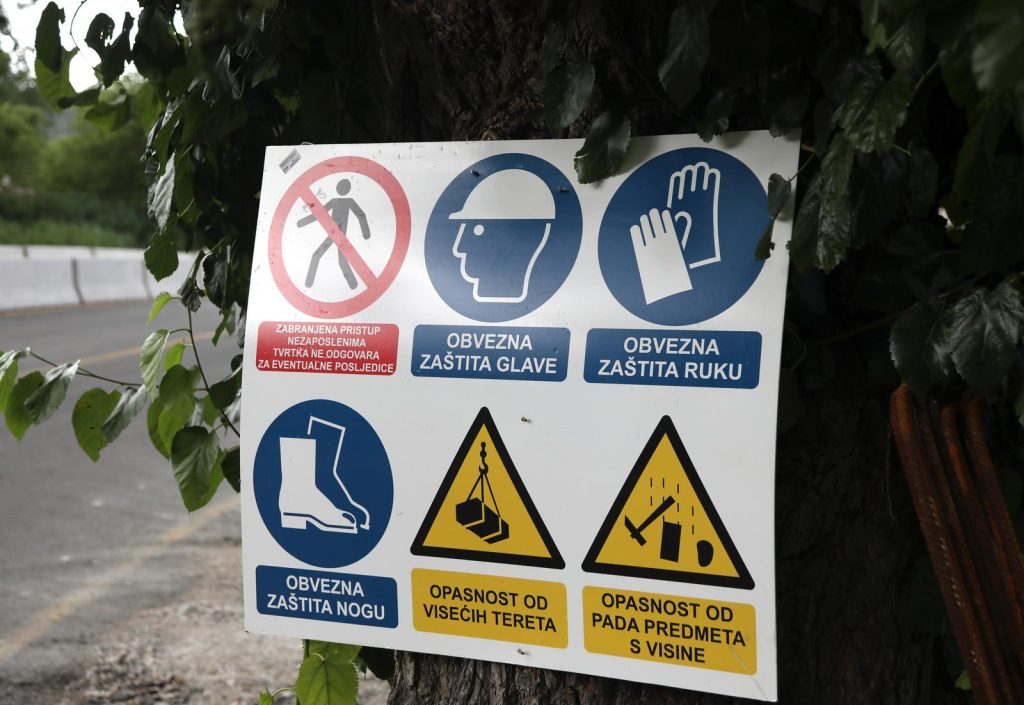July the 23rd, 2024 – A salary increase for the Croatian construction sector is on the horizon as the number of orders and concluded contracts increases.
As Josipa Ban/Poslovni Dnevnik writes, economic activity for the Croatian construction sector has been significantly more dynamic this year than it was last year. Comparisons between May this year and the same month last year, the volume of construction works, according to calendar-adjusted indexes, was 15.3 percent higher. Over the first five months of this year, compared to the first five months of 2023, the indexes of the volume of construction works are a promising 16.3 percent higher.
This data doesn’t come as much of a surprise to Mirko Habijanac, president of the Management Board and majority owner of Radnik, a construction company from Križevci. “There are a lot of contracts in the public sector, and these good trends are certainly being influenced by the positive overall climate in the economy,” he pointed out.
This year, according to him, his company records an increase in orders and contracts, and expects that their number, compared to 2023, will be about 10 percent higher. The members of HUP – the Association of Construction Employers, of which Habijanec is the president, expect approximately the same increase.
tender processes go on for too long

The Croatian construction sector is a tough industry which has faced numerous challenges in recent years. From the coronavirus pandemic to the strong rise in the price of construction and raw materials, to problems with finding labour due to the outflow of qualified workers abroad, it has still managed to maintain positive growth rates. The number of businesses registered as working within the Croatian construction sector grew by 7 percent in a single year (from 2022 to 2023) to an encouraging 21,940.
The Croatian construction sector employed slightly more than 118,000 workers last year, which is 6 percent more than back in 2022. As for the financial results, last year this field achieved almost 22 percent more income and 71 percent more profit than it did in 2022. Specifically speaking, 13.4 billion euros 831 million in revenue and 831 million euros in profit, according to data from the Financial Agency (FINA).
There was a marked trend of a higher number of issued building permits issued in May 2024 compared to May 2023. In addition to that, property prices are still not falling. Owing to a combination of both of those factors, it can be concluded that the positive trends in the Croatian construction sector will continue throughout this year as well.
With improved regulations and a stronger educational framework, the situation could be even better in the future, believes Habijanec. The president of the Radnik Management Board, a company that works equally for the private and public sector, did complain that tenders take much too long.
“We’re working on the regulation of public procurement procedures, the law on obligations, the law on the work of engineers and construction. All these laws need to be amended to make the regulations more orderly, and the processes simpler and more transparent”, stated Habijanec.
“The law on public procurement in Germany has ten times fewer articles and obligations than Croatia’s,” he pointed out, adding that special emphasis should be placed on the efficient implementation of the payment of wages according to collective agreements. As is already very well known at this point, this is a particularly weak point in the Croatian construction sector. This is because a certain percentage of workers still receive part of their wages as cash in hand i.e. illegally, thus creating unfair competition and the state ends up deprived of part of that income. He also announced that an additional increase in wages is expected in the Croatian construction sector, which has already been agreed with the unions and which will be key to retaining the domestic workforce.
education and training continue to be sore points

Habijanec revealed that there is an urgent need to introduce dual education, which has been announced for years, but has never actually been started. “The Croatian construction sector has little benefit from the way professional education is currently carried out in Croatia,” he stated, adding that Croatia is actually only country in the EU that doesn’t have a programme that educates managers.
The Croatian construction sector, which makes up about five percent of the nation’s GDP, could be affected by the savings ordered by the Minister of Finance Marko Primorac. Oleg Butković, the Minister of Maritime Affairs, Transport and Infrastructure, revealed that projects that have already started will not be stopped, but that others could see themselves being “dynamically arranged” differently. That is, certain projects, which have not yet been contracted, could be prolonged and even postponed.









